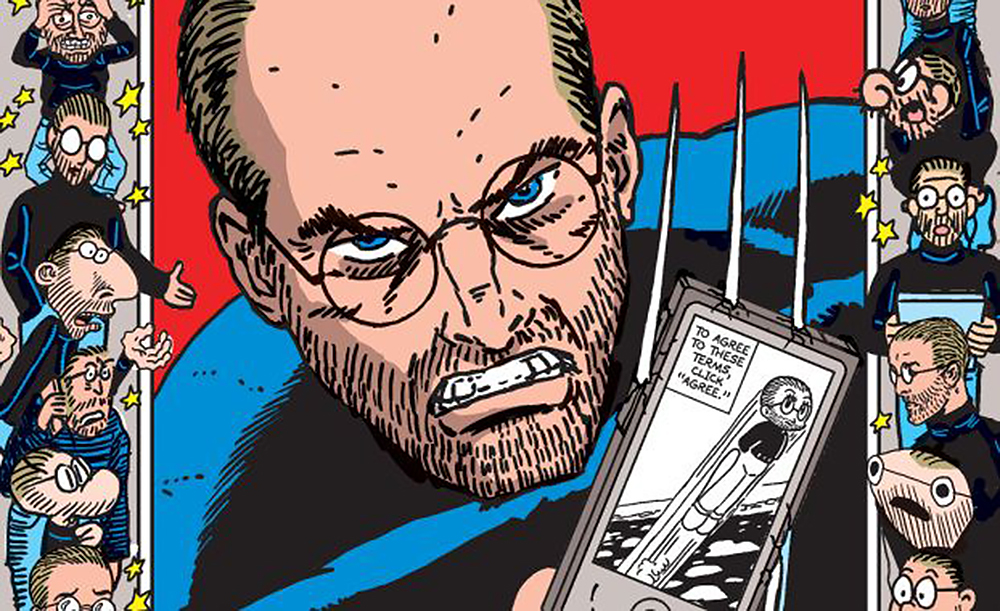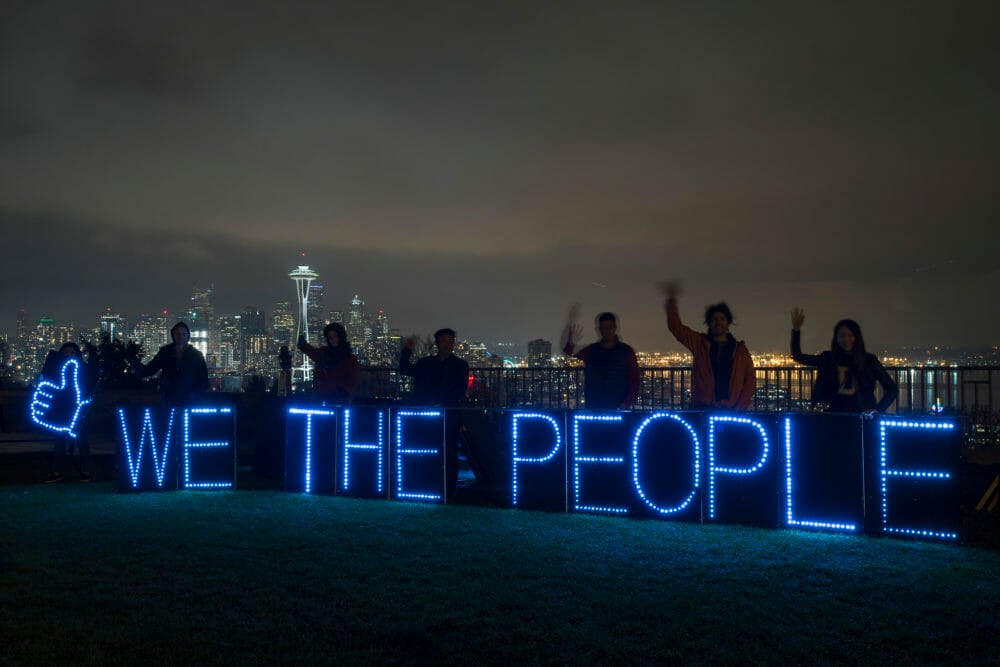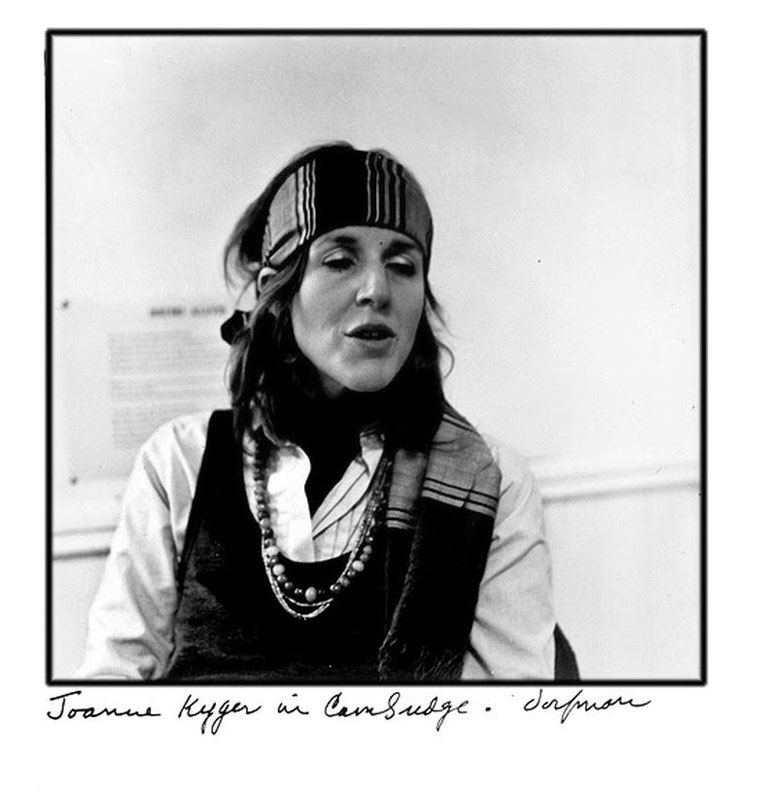One of the coolest videos I’ve seen in the past year is Frivolous Lolaa YouTube clip from TheLate Show with David Lettermanfeaturing actor and comedian Bill Hader.
Or... was that actually Tom Cruise? It's hard to tell sometimes because they keep seamlessly switching back and forth.
So, what exactly are you watching here? Well, someone took an unedited clip of Letterman interviewing Hader and then swapped in Cruise's face using artificial intelligence.
The video is what is known as a deepfake, or manipulated media created through the power of AI.
Deepfakes can be as straightforward as face-swapping one actor onto another in a clip from your favorite movie. Or, you can even have an impersonator provide audio to synced mouth movement and create an entirely new moment for that targeted individual. This Obama deepfake, voiced by Jordan Peele, is a perfect example of that usage.
While the manipulated media is ultimately generated by AI, the human behind it still needs time and patience to craft a good quality deepfake. In the case of that altered Letterman clip, the creator of the video had to take the original clip and feed it to a powerful cloud computer alongside a slew of varying still images of Tom Cruise’s face.
During this time, the computer is, in essence, studying the image and video. It’s “learning” how to best swap Hader and Cruise’s face and output a flawless piece of manipulated video. Sometimes, the AI takes weeks to perfect the deepfake. Plus, it can be expensive, too. You'll need a computer with some pretty powerful specs or you'll have to rent a virtual machine in the cloud to pull off high-quality deepfake creation.
But, that’s quickly changing. Big tech companies are jumping on the trend and developing their own software so that users can create deepfake content. And now, deepfakes are becoming easier to create.
Earlier this week, the face-swapping mobile app Doublicatlaunched. Founded by artificial intelligence company RefaceAI, Doublicat is perhaps the simplest media manipulation tool yet. Users just need to download the app, snap a selfie, and choose from one of hundreds of GIFs portraying popular scenes from movies, TV shows, and the internet. Within seconds, your short, looping deepfake GIF is ready to share.
“We’ve gone from worrying about sharing our personal data to now having to worry about sharing our personal images,” says Singer.
The GIFs are fairly simple and likely chosen based on which image would be easiest for the app to spit out an accurate face swap. It’s far from perfect, but it’s extremely fast. And what it can do with even low-quality selfies is impressive. In time, the technology is only going to get even better.
Doublicat told Mashable that “updates will be coming to allow users to upload their own GIFs, search for GIFs in-app, and use pictures from their phone's camera roll.”
Doublicat may be the simplest media manipulation tool in the U.S., but similar apps exist in international markets.
“Zao, Snap’s new Cameos, Doublicat — face swapping is becoming a commodity thanks to creative entrepreneurs from China and Ukraine,” said Jean-Claude Goldenstein, founder and CEO of CREOpoint, a firm which helps businesses handle disinformation. Goldenstein points out that Snapchat recently acquiredAI Factory, the company behind its Cameosfeature for $166 million.
TikTok, the massively popular video app owned by the Chinese-based Bytedance, has reportedly already developeda yet-to-launch deepfake app as well.
But, it’s not all fun and games.
“A deepfake can ruin a reputation in literally seconds, so if public figures don’t start prepping for these threats before they hit, they’re going to be in for a rude awakening if they ever have the misfortune of being featured in one of these videos,” Marathon Strategies CEO Phil Singer told Mashable. Singer’s PR firm recently launched a service specificallyto deal with disinformation via deepfakes.
To understand the concern behind this seemingly harmless tech that’s been used to create funny videos, one needs to understand how deepfakes first rose to prominence.
In late 2017, the term “deepfake” was coined on Reddit to refer to AI-manipulated media. The best examples at the time were some funny Nicolas Cage-related videos. But, then, the fake sex videos took over. Using deepfake technology, users started taking their favorite Hollywood actresses and face-swapping them into adult film movies. Reddit moved to banthe pornographic use of deepfake in 2018 and expanded its deepfake policy just last week.
In an age of fake news and disinformation easily spread via the internet, it doesn’t take long to see how fake pornographic videos can ruin one’s life. Factor in that we’re now in a presidential election year, the first since coordinated disinformation campaigns ran amok in 2016, and you’ll understand why people are worried about malicious uses of this growing technology.
“We’ve gone from worrying about sharing our personal data to now having to worry about sharing our personal images,” says Singer. “People need to be extra judicious about sharing images of themselves because one never knows how they will be used.”
“It is only a matter of time before they become as ubiquitous as any of the social media tools people currently use,” he continued.
This Tweet is currently unavailable. It might be loading or has been removed.
Most alarming is that some of the world’s biggest tech companies are still wondering how to combat nefarious deepfakes.
Just this month, Facebook announced its deepfake ban. One problem, though: How do you spot a deepfake? It's an issue the largest social networking platform on the planet still hasn’t been able to properly solve.
Facebook launched its Deepfake Detection Challenge to work with researchers and academics on solving this problem, but we’re still not there and we’ll likely never be there one hundred percent.
According to Facebook’s Deepfake Detection website: “The AI technologies that power tampered media are rapidly evolving, making deepfakes so hard to detect that, at times, even human evaluators can’t reliably tell the difference.”
“That’s a serious problem since AI can’t reliably detect fake news or fact check fast enough,” explains CREOpoint’s Goldenstein.
During our exchange, Goldenstein sent me the following quote: “A lie is heard halfway around the world before the truth has a chance to put its pants on."
While looking up the quote’s origin, interestingly, I discovered that different versions of the quote have often been misattributedover the years to Winston Churchill.
If one really wanted to double-down on the belief that Churchill did say this, it seems like it wouldn’t be all that difficult to create a deepfake that “proves” he did.
Topics Artificial Intelligence Facebook Social Media
 The Gray Place
The Gray Place
 Staff Picks: Fleur Jaeggy, R. Sikoryak, Brian Blanchfield, and More
Staff Picks: Fleur Jaeggy, R. Sikoryak, Brian Blanchfield, and More
 The Life of Paper: New Art by Austin Thomas
The Life of Paper: New Art by Austin Thomas
 Revisited: Robert Lowell’s “Beyond the Alps”
Revisited: Robert Lowell’s “Beyond the Alps”
 The Book of No Despair
The Book of No Despair
 On Translating Karolina Ramqvist’s Novel ‘The White City’
On Translating Karolina Ramqvist’s Novel ‘The White City’
 Mike Powell: Why I Live Where I Live
Mike Powell: Why I Live Where I Live
 My Dogs Eat Better Than I Do, and I’m Okay with That
My Dogs Eat Better Than I Do, and I’m Okay with That
 The Commons are Rumbling
The Commons are Rumbling
 Reimagining Elena Ferrante’s “My Brilliant Friend” As a Building
Reimagining Elena Ferrante’s “My Brilliant Friend” As a Building
 On Enmity
On Enmity
 Mike Powell: Visiting a Fissure in the Arizona Desert
Mike Powell: Visiting a Fissure in the Arizona Desert
 “Between Blossoms”: Elusive Photographs by Shen Wei
“Between Blossoms”: Elusive Photographs by Shen Wei
 Light of the World: Derek Walcott, 1930–2017
Light of the World: Derek Walcott, 1930–2017
 Retirement, Brought to You by Prisons, Inc.
Retirement, Brought to You by Prisons, Inc.
 Remembering Joanne Kyger (1934
Remembering Joanne Kyger (1934
 What Is Poetry For?
What Is Poetry For?
 An Empty Saddle for Yevgeny Yevtushenko, Cowboy Poet
An Empty Saddle for Yevgeny Yevtushenko, Cowboy Poet
 These Citadels of Power
These Citadels of Power
 Someone Stole the World’s Largest Gold Coin—Let’s Do It Again
Someone Stole the World’s Largest Gold Coin—Let’s Do It Again
Roger the beefcake kangaroo might be getting his own town statue nowSan Diego ComicThis very good doggo is also a sophisticated art criticCarly Rae Jepsen memes come from the internet, and yet they are so pureApple finally made my dream phone: 2020's iPhone SEHow to get your stimulus payment sent directly to your PayPal accountFrom Netflix to Disney Plus: How the biggest streamers handle HDRActivists target ads at lawmakers who voted to sell your data for targeted adsApple's Magic Keyboard for iPad Pro is now available to orderLG's 'Velvet' phone is the start to the company's revamped design strategyHow to help domestic violence victims during the coronavirus pandemicExhausted parents: Working from home isn't workingTim Cook says he lost 30 pounds using the Apple WatchBansky's latest artwork takes working from home to a whole new levelApple's highTesla is building 'world's most advanced paint shop' at Berlin GigafactoryApple's Magic Keyboard for iPad Pro is now available to orderTim Cook says he lost 30 pounds using the Apple Watch8 ways to end your virtual hangoutBehold this hilariously cursed cake version of NZ PM Jacinda Ardern Lyft partners with the National Federation of the Blind A floating techno Blizzard Entertainment wins $8.7 million lawsuit against cheating service #StopHindiChauvinism has taken over Indian Twitter Samsung's got a more powerful Galaxy S8 that you probably won't be able to buy Explainer: What is Chip Binning? Six reasons Mastodon won't survive NASA's Perseverance rover just had a close call on Mars This postal service is delivering KFC, because there's not enough mail now Owner gives adorable 3 Racist posters targeting Chinese students stir controversy at the University of Texas at Austin Katy Perry Googles hot pictures of herself to boost her confidence This meditative drone video of Augusta National will have you ready for the Masters South Korea's biggest messenger app gets clearance to launch an online Coldplay's Chris Martin visits sick fan hours before concert Twitter reveals its employees have equitable pay on #EqualPayDay Beyoncé alert: The Queen just dropped a video to celebrate wedding anniversary Uh oh: Apple may have to delay the iPhone 8 launch eBay's founder just dropped $100 million to fight fake news These filmmakers will bring immigrant stories to those who need to see them most
2.0988s , 10154.609375 kb
Copyright © 2025 Powered by 【Frivolous Lola】,Creation Information Network